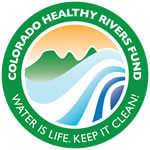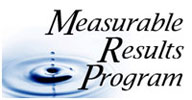Take a look at the helpful tools below. To easily get to the topic of your choice, check out the quick links on the left column. For more helpful information, be sure to look at our Links and Reports pages.
For Educators
- River Network - Environmental Education Programs - River Network compiled a list of organizations that offer programs that connect kids to rivers.
- Trout Unlimited - Stream Explorers: An interactive website to teach kids about fish and other critters that live in rivers.
- The Water Educator Network from the Colorado Foundation for Water Education is a network for improving the understanding of Colorado water issues by increasing the amount, quality and effectiveness of water education. Local water educators will thrive with tools, trainings and collaborations that are relevant to their work, easily accessible and simple to implement. Participants will benefit from technical assistance, a central repository of information and resources, customized communication, and networking. There are a number of events coming up. Take a look at the website for more information!
- Colorado Alliance for Environmental Education (CAEE) - As a professional organization for environmental educators, the Colorado Alliance for Environmental Education (CAEE) facilitates communication, cooperation, collaboration, and coordination among the varied environmental education programs in the state.
- Project WET: Educational Resources -World Wide Water Education: Water Education for Teachers. This successful education resource aims to Educate. Empower. Act. The mission of Project WET is to reach children, parents, educators and communities of the world with water education. We invite you to join us in educating children about the most precious resource on the planet — water.
- Board Education Course by the Secretary of State - Secretary of State Scott Gessler has released the final part of the 5 part of an e-learning series entitled "Board Education and Effectiveness." The series is aimed at helping nonprofits train and strengthen their boards of directors. The course covers a variety of basic governance principles that board members can use to improve their organization's efficacy and efficiency. The entire series (5 courses) is now available. Click here to access the trainings.
- New Collaboration Toolkit - The Source Water Collaborative (SWC) announces a new online toolkit to facilitate partnerships to protect drinking water sources through agriculture conservation practices, stormwater and forest management. The toolkit offers effective steps source water protection professionals working at the local or state level can take to build partnerships with conservation district staff. It is designed for a variety of audiences – from those who have never worked with their conservation district, to those who have attempted but without success, to those who would like to enhance their current efforts.Click here to view the toolkit.
- Federal Energy Management Program Online Water Efficiency Course - The U.S. Department of Energy (DOE) Federal Energy Management Program (FEMP) launched a new water management e-learning course designed to help Federal agencies better manage water resources and meet water efficiency requirements. The course is free and open to the public. Click here to access the course.
- EPA Releases Climate Assessment Update to National Stormwater Calculator - The U.S. Environmental Protection Agency (EPA) has released phase II of the National Stormwater Calculator and Climate Assessment Tool package. The updated calculator includes future climate vulnerability scenarios. The calculator, a part of President Obama’s Climate Change Action Plan, is a desktop application that estimates the annual amount of stormwater runoff from a specific location. The Calculator now includes changes in seasonal precipitation levels, the effects of more frequent high-intensity storms, and changes in evaporation rates based on validated Intergovernmental Panel on Climate Change climate change scenarios. For more information on the calculator, click here.
- Planning and Drought Guide from the American Planning Association (2014) - The new publication “Planning and Drought” offers a comprehensive guide for citizens, planners and communities to explore what drought is, how to track it, its impacts, and how planners and communities can prepare to mitigate its effects. The volume includes eight case studies illustrating the range of drought’s consequences and how different organizations prepared for and responded to them. Download a free copy here.
-
New USGS Portal Provides Access to More Than a Century of Sediment Data - An online, interactive, sediment data portal has been developed to improve the utility and accessibility of USGS suspended-sediment data to watershed managers, policy-makers, researchers, and the public. This database represents the best available compendium of suspended-sediment data for streams in the Nation. Ancillary information on streamflow condition, sediment grain size, sampling method, and landscape condition are also available within the portal. To access the portal, click here.
- Guidelines for Planting Longstem Transplants for Riparian Restoration in the Southwest: Deep Planting - The Ground Water Connection: Click here to access the PDF document released by the Natural Resources Conservation Service Plant Materials Program.
- Practical Streambank Bioengineering Guide: Click here to access this user's guide for natural streambank stabilization technique in the arid and semi-arid Great Basin and Intermountain West. (150 page PDF)
- Ecological Risk Assessment Series: Introduction and Advanced (Recorded) - The introductory course is focused on the general policy and technical approaches to conducting an ecological risk assessment. During the advanced sessions, the specific technical and regulatory approaches to completing ecological risk assessments are reviewed, with a focus on providing a hands-on understanding of an ERA, including the data collection aspects of the various lines of evidence used. Read More
- EPA Releases Tool for Improving Water Quality at the Site, Neighborhood, and Municipal Scales - EPA is releasing a first-of-its-kind water quality scorecard that will help communities in rural, suburban and urban settings incorporate green infrastructure practices to protect local water quality and improve both the built and natural environment. The Water Quality Scorecard was developed to help local governments identify opportunities to remove barriers and revise and create codes, ordinances, and incentives to better protect water quality. Download a copy of the Water Quality Scorecard.
- Your Water, Your Choice: An on-line Tool - Check out this on-line tool for producing customizable messaging for local officials on options for protecting water quality. Visit Your Water Your Decision.
- EPA Releases EnviroAtlas Ecosystem Mapping Tool - The U.S. Environmental Protection Agency (EPA) has released EnviroAtlas, a web-based interactive tool that integrates over 300 separate data layers, helps decision makers understand the implications of planning and policy decisions on our fragile ecosystems and the communities who depend on goods and services from these ecosystems. EnviroAtlas is designed for people from all levels of government, professionals, researchers, educators, non-governmental organizations, and anyone interested in considering the benefits or impacts of a decision, such as siting a new road or city park. EnviroAtlas can be accessed here.





